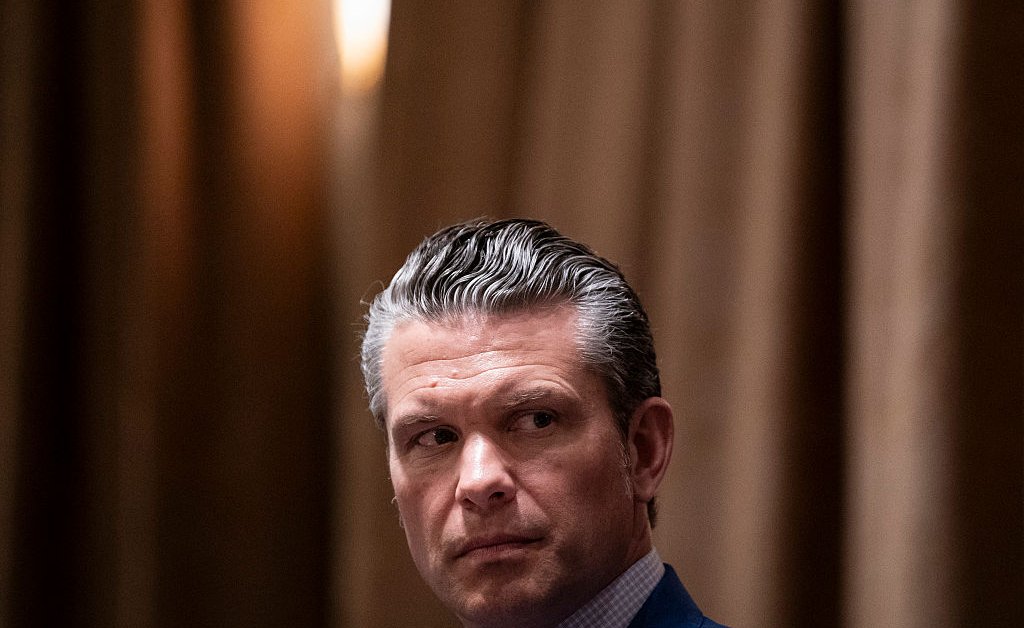When someone you care about lies to you, you’ll probably feel betrayed, furious—and maybe even foolish, because how could you possibly have been duped like that? “People start to question themselves and how they could be so oblivious,” says Christian L. Hart, a professor of psychology at Texas Woman’s University, where he leads the Human Deception Laboratory.
If there’s any hope of repairing the relationship, you’ll need to have a conversation—and exactly what you say matters.
“When you catch someone lying, how you approach them is going to dramatically influence how they react,” Hart says. It’s best to lower the pressure and not explicitly accuse them of being a liar, he adds: “Having a warm approach tends to be a lot more productive than being accusatory. We’re more likely to get people to confess when they feel safe, not when they feel cornered.”
With that in mind, we asked experts exactly what to say when you catch someone in a lie.
“I know this is going to be uncomfortable to talk about, but it’s important.”
Always pursue facts, not people, advises Pamela Meyer, a fraud examiner and author of Liespotting: Proven Techniques to Detect Deception. That means “starting with curiosity, and being direct but calm,” she says. “We know from a lot of research that people are much more willing to come forth if they feel like they’re dealing with a fair operator.”
Meyer likes to open conversations like this: “I need to bring up something that’s been bothering me,” or, “I feel obliged to bring this up.” That’s much more powerful than, say, starting off by declaring: “I know you lied last week,” which will accomplish little except to propel the other person into defense mode.
“I’m a little unclear—tell me again what happened on Saturday night.”
If you haven’t yet uncovered the truth, try the funnel approach, Meyer suggests: Start with broad, open-ended questions before getting more specific. It’s helpful to attach these queries to what she calls “prefix bridges,” which soften the question, encouraging honesty.
“Instead of saying, ‘What form did you fill out?’ it would be like, ‘I’m a little confused. What form did you fill out?’” she says. “Instead of saying, ‘Did you see John on Saturday?’ it would be, ‘Is it possible you saw John on Saturday?’” That helps people feel like they’re clarifying the details of the situation rather than admitting to a lie, she says, which means you’re more likely to get the full story.
“Help me understand what’s going on here.”
This is another example of a calm, open-ended approach that doesn’t make it seem like you consider the other person a liar, Hart says. You could also word it like this: “I don’t think I understand the truth here. Can you help me get the truth?”
Read More: 7 Things to Say When Someone Gaslights You
“Usually, when people lie, they’re assuming the other person’s going to believe it, and this signals that you’re not buying it,” he says. “Sometimes people double down and continue their lying, and sometimes they’ll shift into a different variation of the lie. But many times, they’ll realize that coming clean is the most effective way to navigate the conversation.”
“You’re really kind to say that, but we know it’s not true.”
One of the main reasons people lie—especially women—is to maintain cohesion in important relationships. They might want to make their partner feel better, or, however misguidedly, believe their fib is improving the relationship. “You don’t want to push them away accidentally, because their goal isn’t to drive you away. Their goal is to pull you closer,” says Kevin Colwell, a professor of psychology at Southern Connecticut State University who researches deception.
He suggests responding with a communication technique called empathetic assertion: understanding the other person’s feelings, needs, or wants while expressing your own. For example: “I appreciate that you told me I look like a male model, sweetheart, but I know my better days are behind me now.” “You start with something empathetic to pull it together, and then you make your point,” Colwell says. “You’re trying to preserve the relationship, because that was the real reason for the lie in the first place.”
“That was impulsive, that thing you said.”
Young people often lie because they’re insecure—and you’re not going to get anywhere if you call them out in the moment, Colwell says. Instead, later, when they’re in a secure place where they feel comfortable, you can broach the subject: “Maybe you went a little too far with what you said earlier.”
Read More: The 4 Words That Drive Your Doctor Up the Wall
“You don’t tell them they were completely wrong,” he says. The goal is to open a conversation and create an opportunity for personal growth.
“This doesn’t match what you said earlier.”
When you use this approach, you’re not directly calling someone a liar. “It’s simply an open recognition that what’s being said now doesn’t align with what was said previously,” Hart says. “That allows someone to rectify the situation, and what we find is that often, people will come clean and tell the truth: ‘Oh, what I really meant was….’”
“Here’s one thing I know.”
If you’ve already tried other techniques and your friend won’t come clean—but you know for sure they’re lying—you can employ the “strategic use of evidence,” Hart says. Phrase it like this: “Let me tell you something I do know.”
Read More: 8 Things to Say During a Fight With Your Partner
“It flips that power dynamic and lets the liar know you may already have the truth, or one big piece of the truth,” he says. “Then they’re more likely to fold and not persist in the lie.”
“It’s really important we have an honest relationship, and I want to be honest with you. I hope you’ll be honest with me.”
No matter who you’re talking to—your kid, a new romantic interest, your second cousin-twice-removed—the relationship will only flourish if it’s based on honesty. There’s no need to mince words: If you catch someone in a lie, remind them that honesty is the foundation of trust and respect, and something you both need to commit to. “The goal is to work hard every day to be as honest as we can,” Hart says. “Honesty is a habit that takes practice, and sometimes, it’s hard to do. The more we practice, the more we can push through those difficulties.”
Wondering what to say in a tricky social situation? Email [email protected]








